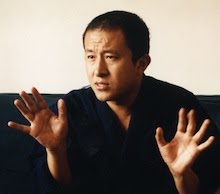Why do things happen to us in life? There are 3 positions you could take on this question:
1) It's controlled or predetermined by a higher power, such as God or fate
2) It's random, and we're all part of a giant cosmic lottery
3) It's causal, so we reap what we sow - there are 'causes' for all the 'effects' in our life, even though the relationship between cause and effect is too complex for us to ever understand it in its entirety
The ancient Indian philosophers - the Hindus, Buddhists and Jains - termed the first two 'eternalism' and 'nihilism' respectively. These are both seen as 'extreme views', and much of Indian philosophy was about establishing why extreme views are a bad thing, and how to build a middle way between these two - the Madhyamika. The philosophy of the middle way rejects the two extreme views of eternalism and nihilism, and accepts the third position of interdependence, which is at the heart of how Buddhists explain why things happen in the world.
But although this debate was settled many centuries ago in India, at least at a philosophical level, it doesn't seem to have made much difference to the way we live our lives. For most of us, either we haven't thought much about it, or else our actions don't line up with our professed beliefs. Meanwhile, extreme views continue to spread like invasive species in an unsuspecting and defenceless ecosystem, and many people actually take pride in holding such beliefs. Sam Harris has clearly set out how religious extremism has led to great human suffering and death from religious wars over the years, and this terrible legacy continues today with the nightmare unfolding right now in Gaza. You might think we'd be ready to scream 'enough is enough'. But the popularity of extremism continues.
And now we have a new representative here in the Pacific North West. In the article "Who Would Jesus Smack Down", The New York Times profiles Mark Driscoll, the pastor of Mars Hill Church in Seattle, a megachurch which draws 7,600 people weekly. He's got "fashionably distressed jeans and a taste for indie rock", and his churches are filled with worshippers - and staff - sporting buzz-cuts and tattoos. He's out to make Calvinism cool. And if, like me, you're not up on your Calvinist theology, that means:
"you are not captain of your soul or master of your fate but a depraved worm whose hard work and good deeds will get you nowhere, because God marked you for heaven or condemned you to hell before the beginning of time"
Extreme views, anyone? And it's no surprise that these views don't lead naturally to compassion in your meditation or your action. Driscoll feels that the American church has transformed Jesus into “a Richard Simmons, hippie, queer Christ,” a “neutered and limp-wristed popular Sky Fairy of pop culture that . . . would never talk about sin or send anyone to hell.” Not exactly HH The Dalai Lama.
.jpg)
.jpg)